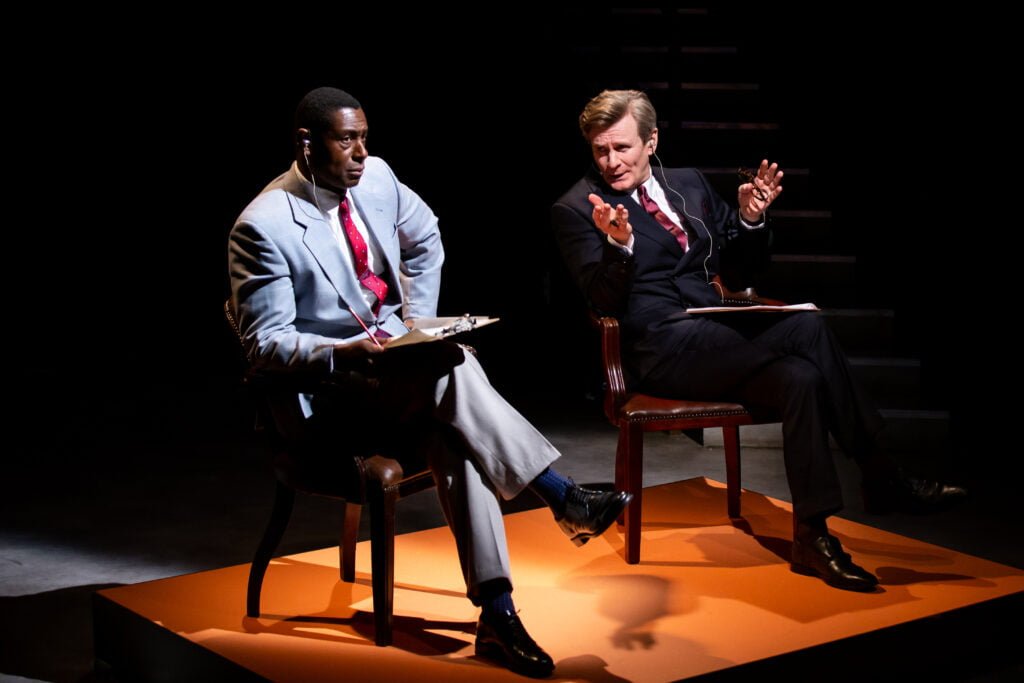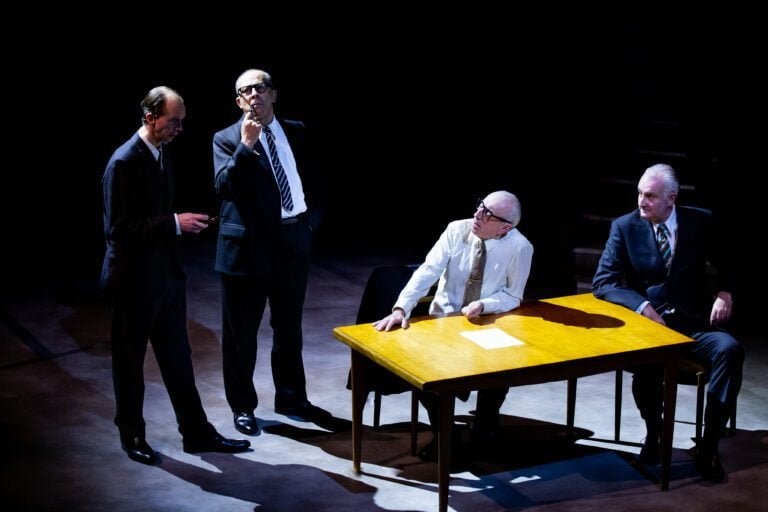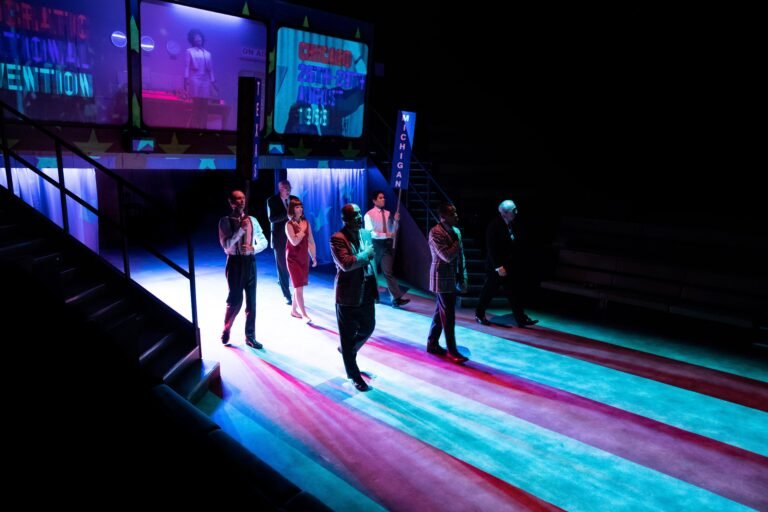New play from James Graham
Political Debate 1968
“The US government prefers that public money go not to the people but to big business. The result is a unique society in which we have free enterprise for the poor and socialism for the rich.”
Gore Vidal

While the USA’s two main political parties were choosing their presidential nominees in 1968, ABC Television hosted political debates between the left wing novelist Gore Vidal and the right wing commentator William F. Buckley. The two men loathed each other. Their exchanges were erudite, witty, and sometimes brutal, and they did wonders for ABC’s ratings.
Playwright James Graham specialises in turning real political stories into drama. His play This House turned into gripping theatre the story of the 1974-9 Labour government’s struggle to survive with a tiny majority.
This one gets off to a rollicking start, with the cameo appearance of a gloriously smug and self-regarding Tariq Ali, and a management meeting at the television company where the executives are required to exercise before the meeting and to stand during it, to oxygenate their brains.
In the debate scenes, the actors speak the words that Vidal and Buckley actually spoke. Outside the debates, they confer with their advisers about how to beat the other man, and – vain in a way that only television can make people – they protest to the network that the other man is getting more of the camera.
Charles Edwards is a wonderful Vidal – dazzled by his own cleverness, but with an awful lot of cleverness to be dazzled by; witty, subtle, serpentine, but at the end sincerely horrified by the cruelty and unfairness of the sort of America his opponent promotes.

I was less convinced by David Harewood’s Buckley, and by the relationship between the two, though Harewood is a fine actor and gets the tone and gestures right. Buckley comes across as humane and moderate, contrasting with the arrogant establishment liberal elite represented by Vidal.
That conflict is what gives this play its urgent relevance to today’s politics. So it’s important to understand that the perception is a lie. Yes, Vidal was well connected, with the Kennedys in particular.
But Buckley was even more of an establishment figure. A conservative and a libertarian, a Catholic, the son of a massively rich oilman, an opponent of all welfare programmes, he was sent to Britain to an elite Jesuit-run Catholic public school where he acquired his aristocratic drawl and fondness for Latin tags. He had worked for the CIA, and he was, in a discreet, genteel way, racist.
It was the great lie of the time that he was somehow an outsider, as it is the great lie of our own time that Donald Trump is an outsider.
The rest of the cast all have to play several parts. They are all good, and the best is John Hodgkinson, playing a louche and self-absorbed television presenter and the appalling political thug Mayor Daley of Chicago. Flawed it may be, but Best of Enemies is gripping, absorbing, funny, and dreadfully relevant to today’s politics.

Production Notes
Best of Enemies
Written by James Graham
Inspired by the documentary by Morgan Neville and Robert Gordon
Directed by Jeremy Herrin
Cast
Starring:
Emilio Doorgasingh
Charles Edwards
Clare Foster
Tom Godwin
David Harewood
John Hodgkinson
Justina Kehinde
Syrus Lowe
Kevin McMonagle
Sam Otto.
Creatives
Director: Jeremy Herrin
Designer: Bunny Christie
Movement Design: Shelley Maxwell
Composer: Benjamin Kwasi Burrell
Lighting Designer: Paule Constable
Sound Designer: Tom Gibbons
Video Director: Luke Halls
Information
Running Time: Two hours and 25 minutes with an interval
Booking to 22nd January 2022
Theatre:
Young Vic
66 The Cut
Waterloo
London SE1 8LZ
Tube/Rail : Waterloo/Southwark
Telephone: 020 7922 2922
Website: youngvic.org
Rail/Tube: Waterloo, Southwark
Reviewed by Francis Beckett
at the Young Vic
at the matinée
on 11th December 2021
